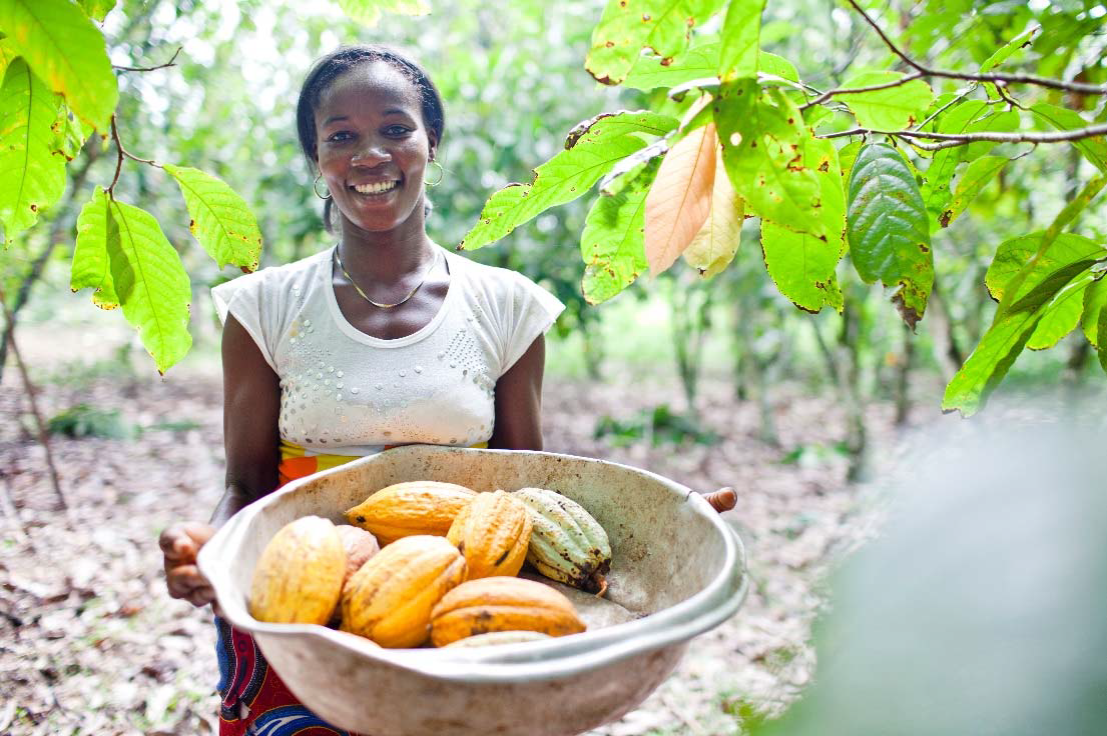General Mills Signs on to World Cocoa Foundation's Joint Frameworks for Action to Combat Deforestation
Commitment will accelerate preservation and rehabilitation of forests in Cote d'Ivoire & Ghana

General Mills Signs on to World Cocoa Foundation's Joint Frameworks for Action …
MINNEAPOLIS, November 16, 2017 /3BL Media/ - General Mills joins leading companies in an agreement to end deforestation, protect national parks from illegal cocoa production and develop alternative livelihoods for affected smallholder farmers in Cote d’Ivoire and Ghana. The two countries produce nearly two-thirds of the world’s annual supply of cocoa. The far-reaching joint Frameworks for Action, led by the World Cocoa Foundation, was announced today at the UN Climate Change Conference (COP23) in Bonn, Germany.
Cocoa is one of General Mills ten priority ingredients, which the company has committed to 100 percent sustainably source by 2020. More than 70 percent of the cocoa General Mills buys is grown in West African countries including Cote d’Ivoire and Ghana.
“Deforestation is a significant challenge, but by aligning and working together, we can help put a stop to it and positively impact climate change by rehabilitating the land,” said John Church, Chief Supply Chain Officer for General Mills. “We also recognize there are systemic labor issues in the cocoa supply chain, and we understand it will take industry-wide collaboration to make improvements. Having the national and local governments, who are key to addressing the issues, at the table from the beginning is key.”
The Frameworks for Action were developed through an extensive, multi-stakeholder process that brought together two national governments, private sector, including farmer and farmers’ organizations, national and international civil society organizations, development partners, and other stakeholders in Cote d’Ivoire and Ghana, and at the global level.
“The Frameworks for Action announced in Bonn, and signed by visionary companies including General Mills, protect and restore forests that have been degraded, accelerate investment in agricultural productivity and engage communities about the importance of this work to their long-term wellbeing,” said Richard Scobey, President of the World Cocoa Foundation. “Most of the deforestation in the cocoa sector in West Africa is a result of poor farmers trying to earn a living by going into protected areas to cut down trees to grow cocoa. This means that we must focus on community development, community empowerment, and making sure that farmers' livelihoods are taken in to account and respected.”
The Framework is centered around three themes:
- Forest protection and restoration: this covers the conservation of National Parks and Reserves, improving the forest cover in the rural domain, as well as restoration of Forest Reserves that have been degraded by human activities, in particular encroachment by cocoa farms among other factors;
- Sustainable production and farmers’ livelihoods: this covers sustainable intensification and diversification of production to increase farmers’ yields and income to reduce pressure on forests; and
- Community engagement and social inclusion: this covers social safeguards through civil society and community engagement.
“This framework will help advance much of the work that we are already doing in these regions to improve the sustainability of cocoa production and foster greater economic vitality for cocoa-growing communities,” said Church. “It is our view that a greater share of the benefit of more socially and economically sustainable cocoa production practices should accrue to the people who produce the crop. This framework will help better implement that across the region.”
For more information on General Mills’ commitment to sustainably sourcing cocoa, visit its 2017 Global Responsibility Report and Taste of General Mills blog.
About General Mills
General Mills is a leading global food company that serves the world by making food people love. Its brands include Cheerios, Annie's, Yoplait, Nature Valley, Fiber One, Häagen-Dazs, Betty Crocker, Pillsbury, Old El Paso, Wanchai Ferry, Yoki and more. Headquartered in Minneapolis, Minnesota, USA, General Mills generated fiscal 2017 consolidated net sales of US $15.6 billion, as well as another US $1.0 billion from its proportionate share of joint-venture net sales. For more information about General Mills, visit www.generalmills.com.

